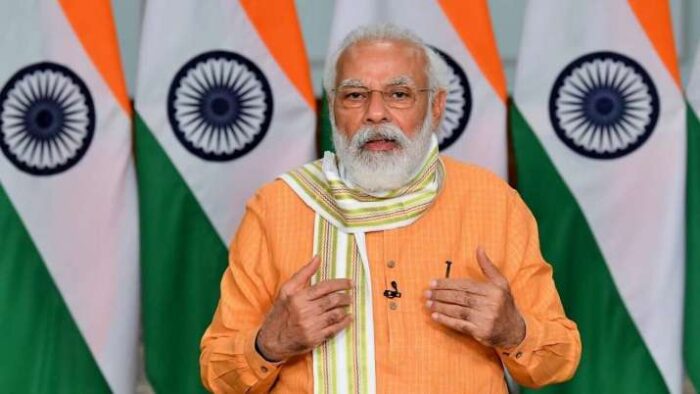New Delhi: Prime Minister Narendra Modi will, on Sunday, hand over bodily copies of property titles of their houses and the encircling areas they personal (as opposed to the cultivated land) to round 132,000 land house owners throughout 763 villages in a big land possession reform that might enhance.

The funds of rural property-owners and in addition finish property disputes which have gone on for years, typically many years. The title deeds will be leveraged by their holders as monetary belongings for loans and also will assist maintain a document of properties in the rural areas; no such data exist at the moment. The title deeds shall be handed over underneath the “Svamitva” mission launched by PM on April 24 and can map all city or abadi (populated) areas of 6.40 lakh villages by 2024.House house owners from 763 villages together with 221 from Haryana, two from Karnataka, 100 from Maharashtra, 44 from Madhya Pradesh, 346 from Uttar Pradesh and 50 from Uttarakhand will obtain bodily copies of title deeds in addition to digital property playing cards, individuals conversant in the matter mentioned.
The goal of this scheme is to present a built-in asset verification resolution for rural India, they added on situation of anonymity. The land of the residents in rural abadi areas shall be demarcated utilizing the most recent survey strategies utilizing drones and with the assistance of the Ministry of Panchayati Raj, State Revenue Departments and the Survey of India. This won’t solely allow village family house owners to use their houses as a collateral for loans but additionally reduce down on expensive rural litigation. The native representatives of the income division and representatives of different allied departments will put together a document of the possession of the individuals in the presence of the inhabitants.
Along with this, an in-depth association has been set in place for on the spot settlement of disputes, the individuals defined. Since the very starting, the villages of India have been the spine of its economic system, as a result of “Malgujari” or land income was the principle supply of the state earnings, these individuals mentioned. When the British took over the reins of governance right here, they inherited a land document system established over centuries.
As their sole goal was to gather as a lot land income from tenants as attainable, the British established the Zamindari system in many components of the nation and the so-called ryotwari system in the remaining components. Even because the possession of the cultivated land and their measurement maps had been ready, they didn’t make any effort to measure the populated space of the village; nor did they fight to decide the possession of residents in these populated areas.
This was not performed as there was no land income to be collected from the abadi space. Unfortunately, even after independence, no effort was made to both demarcate the abadi land or create possession rights there. Due to the absence of any sort of possession data or demarcation of abadi land, each time any dispute arose concerning possession, drainage, or boundaries, the events have to go to a civil courtroom for settlement of disputes, a prolonged course of that typically transcends generations.
The idea of property possession being a means to entry credit score and enhance the monetary place of the poor is nicely established. It is the central thesis of Peruvian economist Hernando de Soto Polar who argues that offering the poor with entry to listless would unlock their financial potential and forestall their belongings from being what he phrases useless capital.


Comments are closed.